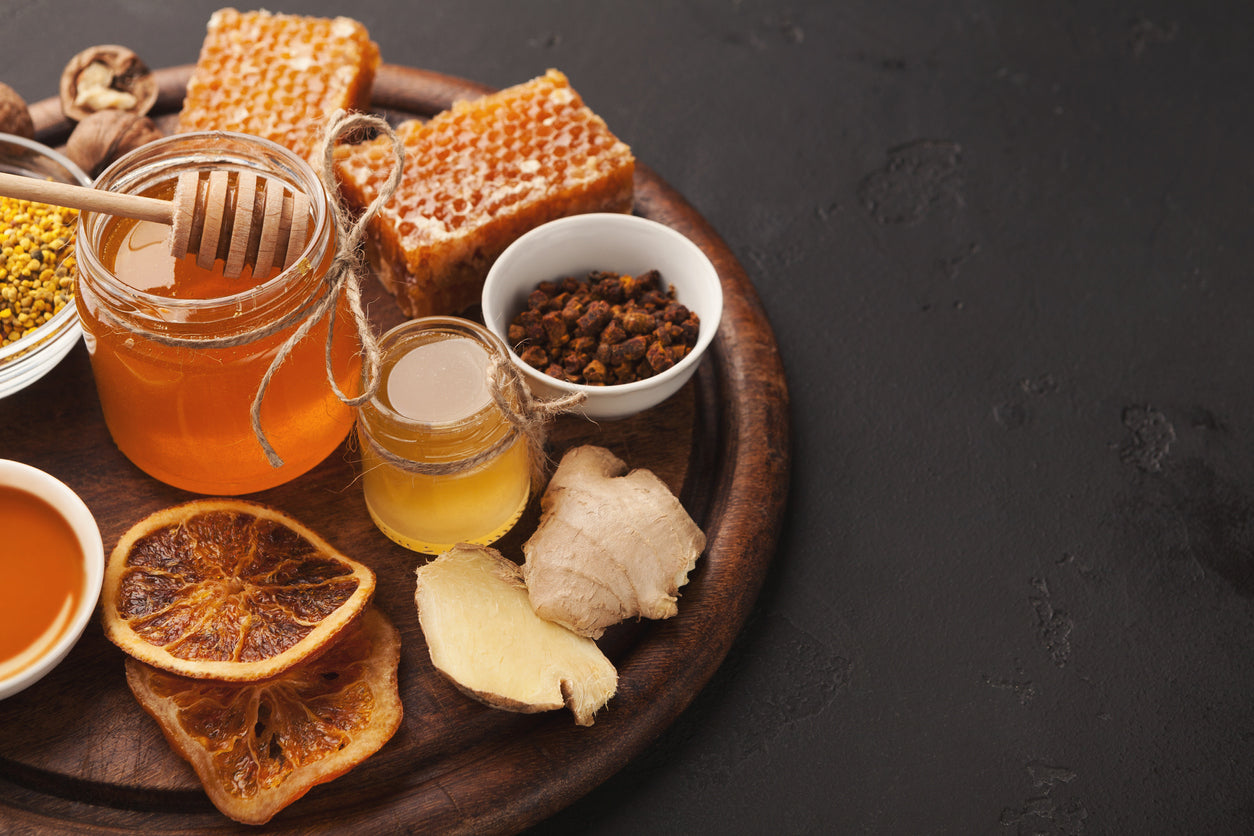Discover how a delicious natural food can improve your heart health

Whether served with your favorite herbal tea, smoothie or fresh (organic) fruit, there's something irresistible about a golden drizzle of honey. Fortunately for natural food lovers, this sweetener - when enjoyed in moderate amounts - can be a valuable ally in supporting your health and warding off disease.
Even though honey has long been a trusted home remedy for easing coughs and soothing irritated throats, research shows its beneficial effects go far beyond this use. Keep reading to discover how consuming honey can help you...
Promote better heart health with a little honey in your diet
In a review conducted at the University of Toronto and published in the International Journal of Environmental Research in Public Health, the researchers credited honey with reducing risk factors for heart disease – a top cause of death among adults. It does this in a variety of ways.
Honey's impressive roster of antioxidant flavonoids protects the heart by inhibiting oxidative damage. In addition, it increases the activity of antioxidant "good guys" - such as glutathione and superoxide dismutase - already being produced in the body.
As if this weren't heroic enough, honey has been shown to suppress apoptosis, or programmed cell death, while helping to inhibit excessive oxidative "bursts" in the heart that can trigger heart attacks. Other studies have even suggested that honey can help correct heart arrhythmias - quite a list of accomplishments for the product of the humble honeybee!
Small amounts of honey can help to support a healthy metabolism and body weight
Honey may also help protect against metabolic syndrome, a constellation of unhealthy conditions that includes obesity, excess abdominal fat, high blood pressure, high blood sugar, and high levels of fats in the blood. Research suggests that honey can improve the metabolism of fats, lower blood sugar, decrease diastolic blood pressure and naturally reduce LDL cholesterol levels.
Studies have also shown that honey can reduce C-reactive protein, a marker of inflammation, in overweight and obese adults. As a prebiotic food that provides fuel to beneficial gut bacteria, honey can support the gut microbiome's health, promoting healthy metabolism and weight.
Keep in mind, at 64 calories per tablespoon, honey is not a low-calorie food and is high in natural sugars such as glucose, sucrose, and fructose. However, enjoying it in modest amounts, and substituting it for white sugar, can definitely help to boost metabolic health.
In the words of the review authors, "If you're using table sugar, syrup, or another sweetener, switching (to) honey might lower cardiometabolic risks."
Avoid the threat of nonalcoholic fatty liver disease with honey
A review published in the British Journal of Nutrition suggests that regular consumption of honey (only two to six times a week) was associated with a lower risk of NAFLD. Nonalcoholic fatty liver disease, or NAFLD, is characterized by excessive fat in the livers of those who drink little or no alcohol. Even mild, untreated NAFLD can sometimes progress to potentially life-threatening conditions such as severe liver inflammation, liver failure, and liver cancer.
Honey supports liver health by promoting optimal glycogen storage, thereby helping to control the release of stress hormones that could otherwise impair blood sugar metabolism and cause insulin resistance - a contributor to fatty liver disease. And, because honey improves fat metabolism, it would seem to be a "natural" for helping to avoid fat deposits in the liver.
Another "plus" for honey is that it increases adiponectin levels, a useful hormone that lowers inflammation and improves blood sugar regulation.
Don't forget: Choose darker honey over paler varieties
For maximum benefit, choose honey from a single source - rather than a mix of flowers - and opt for raw, unpasteurized honey free of additives and GMOs. Remember: the darker and cloudier the honey, the higher the antioxidant content.
Australian Manuka honey, rich in the antioxidant flavonoids chrysin, pinobanksin, and pinocembrin, is considered the "cream of the crop" of all honeys.
How much honey is too much? As excessive consumption can cause weight gain, digestive problems, and tooth decay, most holistic healthcare providers will suggest limiting intake to no more than a tablespoon and a half a day. And honey may not be suitable for those who are obese, have type 2 diabetes, are allergic, or are vegans.
By the way, if you've discovered a crystallized bottle of honey in the back of a cupboard, have no fear - it's still safe to eat. Set the bottle in a bowl of warm water to re-liquify it or spread it "as is" in all its sweet, gritty glory.
Whether you stir it into tea, blend it in a smoothie, add it to a marinade, or enjoy it over cereal, honey is ready and willing to impart its golden goodness - and sweet health benefits!
Sources for this article include:
-
Posted in
antioxidants, benefits of honey, healthy sweeteners, heart health, manuka honey, nafld






